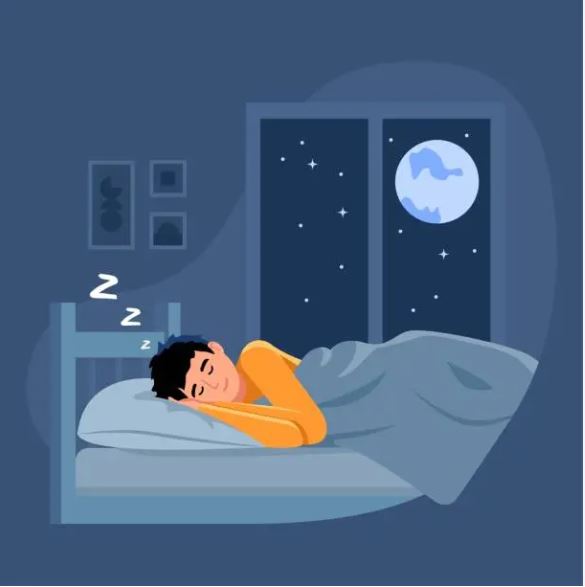


 1:6:28
1:6:28  2025-09-23
2025-09-23  1063
1063

When we sleep, the body releases its ‘growth hormone', building up and repairing muscles and bones – but the details of how and why have been something of a mystery, until now.
Through a close analysis of brain circuitry in mice, researchers led by a team from the University of California, Berkeley (UC Berkeley) have found special mechanisms and feedback loops that regulate growth hormone release while we sleep.
The findings could help us better treat conditions that come with sleep problems, including type 2 diabetes and Alzheimer’s disease. Understanding sleep is the key to understanding a whole host of aspects of our health.
"People know that growth hormone release is tightly related to sleep, but only through drawing blood and checking growth hormone levels during sleep," says neuroscientist Xinlu Ding, from UC Berkeley.
"We're actually directly recording neural activity in mice to see what's going on. We are providing a basic circuit to work on in the future to develop different treatments."
That directly recorded neural activity, logged during multiple sleep-wake cycles in mice, revealed that growth hormone was released in different ways during REM (rapid eye movement) sleep and non-REM sleep.
While growth hormone was increased in both phases, the neurons promoting and inhibiting its production shifted in terms of their influence. There was also a feedback loop involving neurons in the locus coeruleus, a part of the brain linked to wakefulness.
"This suggests that sleep and growth hormone form a tightly balanced system," says neuroscientist Daniel Silverman. "Too little sleep reduces growth hormone release, and too much growth hormone can in turn push the brain toward wakefulness."
"Sleep drives growth hormone release, and growth hormone feeds back to regulate wakefulness, and this balance is essential for growth, repair, and metabolic health."
Besides its main job – promoting growth – growth hormone manages how glucose and fat are processed in the body. Without the right amount of the hormone, through a lack of sleep, the risk of obesity, diabetes, and cardiovascular disease can increase. That adds to the number of ways that the new discoveries could be linked to good health.
What's more, the locus coeruleus also plays a part in managing how alert the brain is while we're awake. It's possible that the mechanisms revealed here are affecting cognition during the day.
A lot more research is needed to determine all this for sure, and while there's good reason to believe that human brains and mice brains operate in the same way in these areas, it still needs to be proven. Ultimately though, new treatments for poor sleep could follow, which is something so many of us struggle with.
"Understanding the neural circuit for growth hormone release could eventually point toward new hormonal therapies to improve sleep quality or restore normal growth hormone balance," says Silverman.
"There are some experimental gene therapies where you target a specific cell type. This circuit could be a novel handle to try to dial back the excitability of the locus coeruleus, which hasn't been talked about before."
Reality Of Islam |
|

MXenes are

A newly dev

Get ready f

Researchers
 9:3:43
9:3:43
 2018-11-05
2018-11-05
10 benefits of Marriage in Islam
 7:5:22
7:5:22
 2019-04-08
2019-04-08
benefits of reciting surat yunus, hud &
 9:45:7
9:45:7
 2018-12-24
2018-12-24
advantages & disadvantages of divorce
 11:35:12
11:35:12
 2018-06-10
2018-06-10
 6:0:51
6:0:51
 2018-10-16
2018-10-16
 1:16:44
1:16:44
 2018-05-14
2018-05-14
 8:30:23
8:30:23
 2022-03-03
2022-03-03
 3:18:29
3:18:29
 2022-12-24
2022-12-24
 6:28:21
6:28:21
 2022-12-20
2022-12-20
 8:4:21
8:4:21
 2022-01-08
2022-01-08
al-hussain (peace be upon him)
 10:18:1
10:18:1
 2022-09-21
2022-09-21
 7:32:24
7:32:24
 2022-02-14
2022-02-14
 5:41:46
5:41:46
 2023-03-18
2023-03-18
| LATEST |